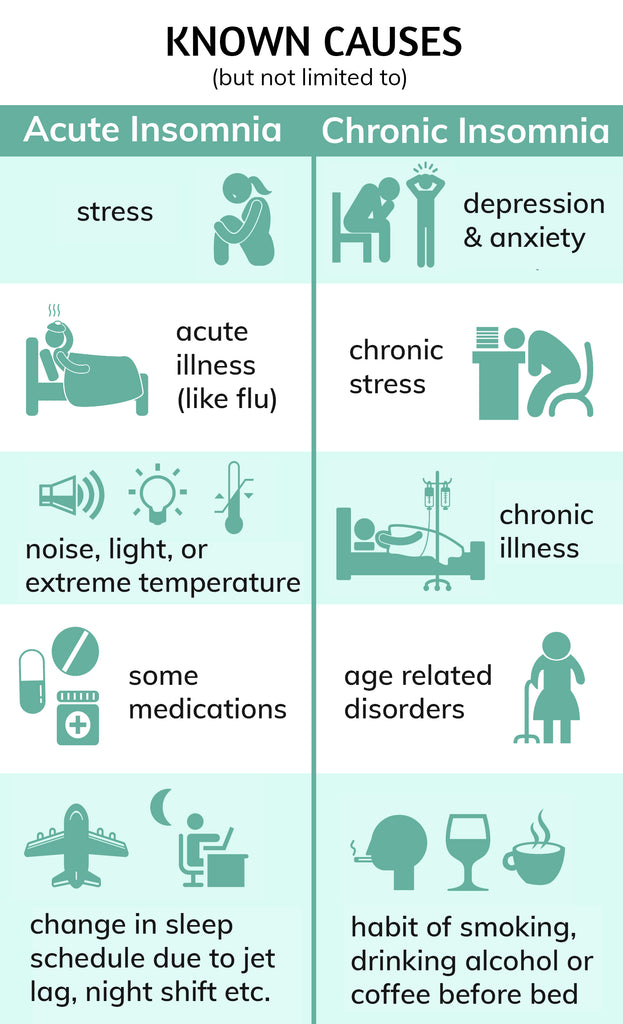Your Shopping Bag is Empty

There doesn’t really exist a specific definition. If you have difficulty falling and/or staying asleep, you may have insomnia. A few symptoms commonly experienced by people suffering from this disorder are:
A person with insomnia is likely to experience tiredness during the day along with an inability to concentrate on daily activities. Irritability and mood changes may also be side effects of the disorder.
Yes. Insomnia may be a consequence of disease/medication (secondary insomnia), or it may occur completely independently (primary insomnia).
Insomnia also varies in how long it lasts and how often it occurs. It can be short-term (acute insomnia) or can last a long time (chronic insomnia). It can also come and go, with periods of time when a person has no sleep problems. Acute insomnia can last from one night to a few weeks. Insomnia is called chronic when a person has insomnia at least three nights a week for a month or longer.

Yes. Consult your healthcare provider, who may take a detailed personal and medical history. You may be required to keep a sleep diary chronicling your sleeping patterns. In case a diagnosis isn't made, you may be even referred.
VIEW PRODUCTS THAT HELP YOU SLEEP. Click here
Yes. If the insomnia is the result of another health condition, such as chemotherapy, depression etc., then management of said condition should resolve the insomnia. Apart from that, there are several ‘good sleeping habits’ you can adopt to sleep better. For example:
Apart from all this, your doctor may prescribe you sleeping pills. Some of these have side effects (drowsiness throughout the day) and decreased efficacy with prolonged use, so be sure to ask about them and be well informed.
By Dharini Prasad
Guest Author and Student of Medicine
Comments will be approved before showing up.